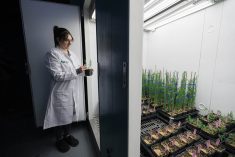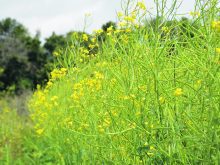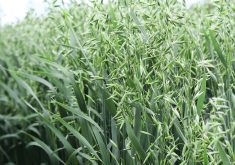A recent study finds researchers are nearing the end of their careers with most of those surveyed in their 50s and 60s
WINNIPEG — Plant breeders spend most of their time solving problems related to plants.
But plant breeders also have a people problem.
The profession isn’t attracting enough young people, which has created a shortfall of plant breeders in Canada, Australia, the United States and elsewhere.
Read Also

Why feds imposed EV tariffs
Moe and Kinew have a fight on their hands when it comes to eliminating the EV tariff. Canada has to worry about pissing off the U.S. and Mexico and hundreds of thousands of auto workers.
“It is a field that is getting smaller and smaller,” said Valerio Hoyos-Villegas, a plant scientist at McGill University in Montreal. “This is not unique to Canada. This is a global situation.”
In June, Hoyos-Villegas and scientists from Australia and New Zealand published a paper on the shortage of plant breeders in the journal Crop Science.
The researchers surveyed plant breeders in Canada, Australia and New Zealand to understand why the shortage is happening and what can be done about it.
A key finding is that plant breeders are nearing the end of their careers. Of 84 in the survey, most were in their 50s and 60s.
“Of the total number of survey respondents, 55 percent were aged 51 and over, highlighting the generational gap that has occurred in the sector,” the paper says.
Further, plant breeders who participated in the survey are worried about the imminent retirement of those older scientists:
Seventy-one percent agreed that the plant breeding sector is at risk of losing a significant amount of skilled workers in the next 10 years.
Sixty-nine percent said the plant breeding sector is struggling to attract students to train as the next generation of scientists.
“If there are more and more people that are leaving (plant breeding) and not enough people replacing them … it’s going to impact the primary crops (rice, corn, soybeans and wheat) but also all these minor crops,” said Hoyos-Villegas, a breeder who specializes in chickpeas and cranberry beans, a popular crop in Quebec.
Retirements happen in all fields of science, but agriculture does face special challenges. When young people are choosing a career path, agriculture is rarely top of mind — or on their minds at all.
“The number of people that want to go into agriculture … it is a smaller percentage. It’s not seen as a mainstream discipline,” said Hoyos-Villegas.
Plant breeders who took part in the survey agreed that the field has a communication problem.
“However, it was noted that this is not just a trend in plant breeding … the agricultural sector as a whole … needs to improve promotion,” said the article.
Lack of awareness about career opportunities in agriculture was painfully obvious in an online survey by Ipsos in 2023.
The polling firm surveyed more than 2,000 Canadians between the ages of 16 and 65 to gauge public perceptions of agriculture.
A majority, 54 percent, were “unable to identify a job in the agricultural industry that is not a farmer,” the Canadian Agricultural Human Resources Council said in a 2023 report.
The notion that a farmer is the only job in agriculture is a large public relations hurdle to overcome. But a career in plant breeding should be an easy sell to young people, since it’s a job that can truly make a difference.
In 1974 Baldur Stefansson, a University of Manitoba plant breeder, released the first variety of canola. Fifty years later, the canola industry is worth possibly $30 billion to Canada’s economy and thousands of prairie farmers are more profitable thanks to canola.
In 1998, Stefansson received the Wolf Prize, often described as the Nobel Prize of agriculture.
Some young Canadians may not care about canola or Stefansson’s story. But plant breeders can tell similar stories to the public and to young scientists “of what you can do as a plant breeder … What sort of life you can lead,” Hoyos-Villegas said. “And what sort of service you can (provide) to humanity.”
















